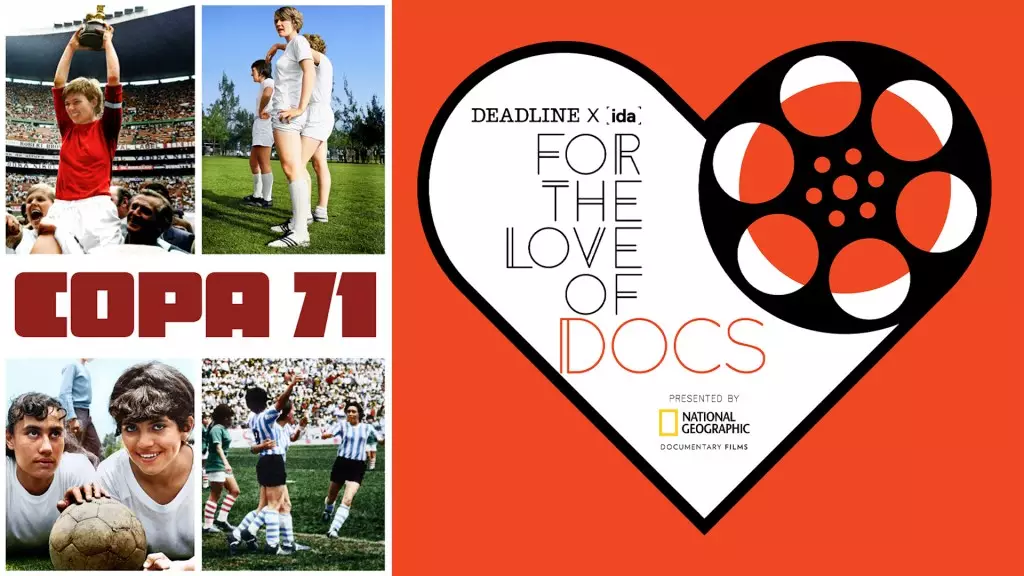In 1971, a significant yet overshadowed chapter in the world of sports took place in Mexico City’s Azteca Stadium, where over 110,000 spectators gathered for what was dubbed the (unofficial) Women’s World Cup soccer tournament. This event remains one of the largest crowds ever assembled for a women’s sporting competition. Despite its monumental success, the tournament has all but vanished from the annals of history, a complexity explored in the documentary “Copa 71.” Directed by Rachel Ramsay and James Erskine, along with producer Victoria Gregory, the film sheds light on an event that, though groundbreaking, has been largely forgotten and often marginalized.
The documentary illustrates the difficulty of revisiting the past after it has been swept under the rug. Gregory recounts the project’s origins: she was inspired by a radio segment featuring a member of the England team, prompting her to pursue the idea of a documentary centered around this forgotten tournament. This background reveals the undercurrents of personal motivation and societal obligation that fueled the filmmakers’ commitment to unearthing this lost history.
Reconnecting with the surviving players proved to be formidable, as many were reluctant to participate. Their hesitation stemmed from years of being treated dismissively, often facing unwarranted sexual scrutiny that overshadowed their athletic prowess. The media’s portrayal of female athletes during the 1970s, often riddled with misogyny and condescendence, created an environment where former players were cautious to reopen old wounds. The filmmakers aimed to reassure these women of their integrity and earnestness while promising not to sensationalize their experiences. This delicate balancing act underscores the importance of trust in storytelling and reveals the sensitivity required to address historical injustices related to gender in sports.
The socio-political climate surrounding the tournament compounded the difficulties. FIFA, the governing body for soccer worldwide, not only disregarded the women’s event but actively perceived it as a threat to its male-dominated hierarchy. The organization’s refusal to sanction a formal Women’s World Cup until 1991 illustrates a systemic disregard for women’s sports—a sentiment that resonates to this day. The relevance of “Copa 71” is further amplified when reflecting on contemporary issues, including a recent scandal involving former Royal Spanish Football Federation president Luis Rubiales, whose inappropriate behavior toward female players during a medal ceremony symbolizes the ongoing struggle for women’s rights in sports.
As Ramsay poignantly notes, the themes in “Copa 71” remain hauntingly relevant. The documentary probes deeper issues of power, financial independence, and self-expression in sports—facets still contested in today’s athletic landscape. The parallels drawn between the struggles of the past and present highlight a cyclical nature of gender politics. This consistent struggle for recognition and autonomy in women’s sports raises essential questions about societal attitudes towards female athletes and the persistent fight for equality.
Moreover, the Mexican team’s advocacy for better compensation during the tournament showcases the economic exploitation of female athletes. Despite drawing massive crowds and generating significant revenue for various stakeholders, the players remained deprived of equitable recognition and compensation. Erskine underscores this disparity, focusing not merely on financial concerns but on the control and agency over women in sports. Their fight transcends the financial aspect, aiming for fundamental rights that have yet to be fully realized.
As audiences engage with “Copa 71,” they are invited to confront the historical context and acknowledge the systemic barriers that have long plagued women’s sports. The documentary serves as a powerful reminder that the fight for equality in sports is not merely a contemporary issue but one steeped in a rich history, deserving of remembrance and recognition. The filmmakers’ commitment to preserving this narrative is not only vital for honoring the athletes’ legacies but also crucial for inspiring future generations to challenge the status quo.
In shedding light on Copa 71, Ramsay, Erskine, and Gregory invite us not just to reflect on the past, but to ignite a conversation about the future of women’s sports. With the knowledge gained from the events of 1971, society stands at a crossroads, facing the opportunity and responsibility to champion equity, respect, and recognition for all athletes, regardless of gender. The fight for justice continues, and through endeavors like “Copa 71,” we are reminded that progress is possible when we honor our history.


Leave a Reply